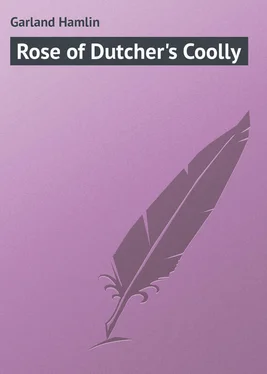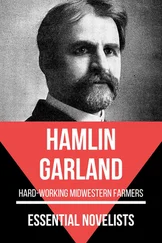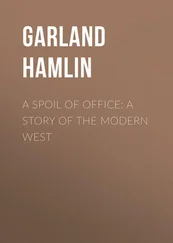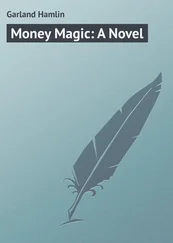Hamlin Garland - Rose of Dutcher's Coolly
Здесь есть возможность читать онлайн «Hamlin Garland - Rose of Dutcher's Coolly» — ознакомительный отрывок электронной книги совершенно бесплатно, а после прочтения отрывка купить полную версию. В некоторых случаях можно слушать аудио, скачать через торрент в формате fb2 и присутствует краткое содержание. Издательство: Иностранный паблик, Жанр: foreign_prose, на английском языке. Описание произведения, (предисловие) а так же отзывы посетителей доступны на портале библиотеки ЛибКат.
- Название:Rose of Dutcher's Coolly
- Автор:
- Издательство:Иностранный паблик
- Жанр:
- Год:неизвестен
- ISBN:нет данных
- Рейтинг книги:4 / 5. Голосов: 1
-
Избранное:Добавить в избранное
- Отзывы:
-
Ваша оценка:
- 80
- 1
- 2
- 3
- 4
- 5
Rose of Dutcher's Coolly: краткое содержание, описание и аннотация
Предлагаем к чтению аннотацию, описание, краткое содержание или предисловие (зависит от того, что написал сам автор книги «Rose of Dutcher's Coolly»). Если вы не нашли необходимую информацию о книге — напишите в комментариях, мы постараемся отыскать её.
Rose of Dutcher's Coolly — читать онлайн ознакомительный отрывок
Ниже представлен текст книги, разбитый по страницам. Система сохранения места последней прочитанной страницы, позволяет с удобством читать онлайн бесплатно книгу «Rose of Dutcher's Coolly», без необходимости каждый раз заново искать на чём Вы остановились. Поставьте закладку, и сможете в любой момент перейти на страницу, на которой закончили чтение.
Интервал:
Закладка:
"O, pappa, he said I ought to go to Madison to school. He said he'd help me go."
John looked up in astonishment at her excitement.
"Who said so?"
"Dr. Thatcher, the man who visited our school today. He said I'd ought to go, and he said he'd help me."
Her exultation passed suddenly. Somehow there was not so much to tell as she had fancied, and she suddenly found herself unable to explain the basis of her enthusiasm. The perceived, but untranslatable expression of the Doctor's eyes and voice was the real foundation of her hope, and that she had not definitely and consciously noted – to explain it was impossible. If her father could only have seen him!
"I guess you'd better wait awhile," her father said, with a smile, which Rose resented.
"He's coming tonight."
"Who's he?"
"Dr. Thatcher. He used to live here. He knows you."
John grew a little more intent on her news.
"Does! I wonder if he is old Stuart Thatcher's son? He had a boy who went east to school somewheres."
Rose went into the house and set to work with the graceful celerity which Mrs. Diehl called "knack."
"Rose, you can turn off work when you really want to, to beat anything I ever see."
Rose smiled and hummed a tune. Mrs. Diehl was made curious.
"You're wonderful good-natured, it seems to me. What's the reason, already?"
"We're going to have company."
"Who, for Peter's sake?"
"Dr. Thatcher."
"What's he come here for?"
"To see pappa," said Rose, as she rushed upstairs into her attic-room. It was cold up there, warmed only by the stove-pipe from the sitting-room, but she sat down and fell into a dream in which she recalled every look and word he had given her.
She came suddenly to herself, and began putting on her red dress, which was her company dress. When she came downstairs in her creaking new shoes Mrs. Diehl was properly indignant.
"Well! I declare. Couldn't you get along in your calico?"
"No, I couldn't!" Rose replied, with easy sharpness, which showed the frequent passages at arms between them.
When Thatcher came in with the teacher he was quite startled by the change in her. She looked taller and older and more intricate some way.
She took his hat and coat and made him at home in much better form than he had reason to think she knew. She on her part watched him closely. His manner at the table was a source of enlightenment to her. She felt him to be a strong man, therefore his delicacy and consideration meant much to her. It suggested related things dimly. It made her appreciate vaguely the charm of the world from whence he came.
Dr. Thatcher was not young, and his experience as a physician had added to his natural insight. He studied Rose keenly while he talked with John concerning the changes in the neighborhood.
He saw in the girl great energy and resolution, and a mental organization not simple. She had reason and reserve force not apprehended by her father. The problem was, should he continue to encourage her. Education of a girl like that might be glorious – or tragic! After supper John Dutcher took him into the corner, and, while Rose helped clear away the dishes, the two men talked.
"You see," John explained, "she's been talkin' about going on studyin' for the last six months. I don't know what's got into the girl, but she wants to go to Madison. I suppose her learnin' of that Bluff-Sidin' girl goin' has kind o' spurred her on. I want her to go to the high school at the Sidin', but she wants to go away" – he choked a little on that phrase – "but if you an' teacher here think the girl'd' ought to go, why, I'll send her."
The younger man looked grave – very grave. He foresaw lonely hours for John Dutcher.
"Well – the girl interests me very much, Mr. Dutcher. It's a strong point in her favor that she wants to go. Most girls of her age have little ambition beyond candy and new dresses. I guess it's your duty to send her. What she wants is the larger life that will come to her in Madison. The preparatory work can be done here at the Siding. I believe it is one of the accredited schools. Of course she will come home often, and when she comes to Madison, I will see that she has a home until she gets 'wunted,' as you farmers say."
The teacher came in at this point full of wild praise of Rose's ability. "She's great on history and geography. She knows about every city and river and mountain on the maps."
"She's always been great for geography," confirmed John. "Used to sit and follow out lines on the maps when she wasn't knee-high to a 'tater." A tender tone came into his voice, almost as if he were speaking of a dead child. He too had a quick imagination, and he felt already the loss of his girl, his daily companion.
The matter was decided there. "You send her to me, when she gets ready, and I'll have Mrs. Thatcher look after her for a week or so, till we find her a place to stay."
Rose was in a fever of excitement. She saw the men talking there, and caught disconnected words as she came and went about the table. At last she saw Dr. Thatcher rise to go. She approached him timorously.
"Well, Rose, when you come to Madison you must come to our house. Mrs. Thatcher will be glad to see you." She could not utter a word in thanks. After he had gone Rose turned to her father with a swift appeal.
"Oh, pappa, am I going?"
He smiled a little. "We'll see when the time comes, Rosie."
She knew what that meant and she leaped with a joy swift as flame. John sat silently looking at the wall, his arm flung over the back of his chair. He wondered why she should feel so happy at the thought of leaving home, when to him it was as bitter as death to think of losing her for a single day out of his life.
Thenceforward the world began to open to Rose. Every sign of spring was doubly significant; the warm sun, the passing of wild-fowl, the first robin, the green grass, the fall of the frost, all appealed to her with a power which transcended words. All she did was only preparation for her great career beyond the Ridge.
She pictured the world outside in colors of such splendor that the romance of her story-papers seemed weak and pale.
Out there in the world was William De Lisle. Out there were ladies with white faces and heavy-lidded, haughty eyes, in carriages and in ball-rooms. Out there was battle for her, and from her quiet coulé battle seemed somehow alluring.
CHAPTER VIII
LEAVING HOME
As the time for leaving came on Rose had hours of depression, wherein she wondered if it were worth while. Sometimes it began when she noticed a fugitive look of sorrow on her father's face, and sometimes it was at parting with some of her girl friends, and sometimes it was at thought of Carl. She had spent a year in the Siding in preparation for the work in Madison, and the time of her adventure with the world was near.
Carl came to be a disturbing force during those last few weeks. He had been a factor in all of the days of her life. Almost without thought on her part she had relied upon him. She had run to him for any sort of material help, precisely as to a brother, and now he was a man and would not be easily set aside.
He generally drove her to meeting on Sunday, and they loitered on the shady stretches of the coulé roads. He generally put his arm around her, and she permitted it because it was the way all the young fellows did but she really never considered him in the light of a possible husband.
Most of the girls were precocious in the direction of marriage, and brought all their little allurements to bear with the same object in view which directs the coquetry of a city belle. At sixteen they had beaux, at seventeen many of them actually married and at eighteen they might often be seen riding to town with their husbands, covered with dust, clasping wailing babes in their arms; at twenty they were often thin and bent in the shoulders, and flat and stiff in the hips, sallow and querulous wives of slovenly, careless husbands.
Читать дальшеИнтервал:
Закладка:
Похожие книги на «Rose of Dutcher's Coolly»
Представляем Вашему вниманию похожие книги на «Rose of Dutcher's Coolly» списком для выбора. Мы отобрали схожую по названию и смыслу литературу в надежде предоставить читателям больше вариантов отыскать новые, интересные, ещё непрочитанные произведения.
Обсуждение, отзывы о книге «Rose of Dutcher's Coolly» и просто собственные мнения читателей. Оставьте ваши комментарии, напишите, что Вы думаете о произведении, его смысле или главных героях. Укажите что конкретно понравилось, а что нет, и почему Вы так считаете.












